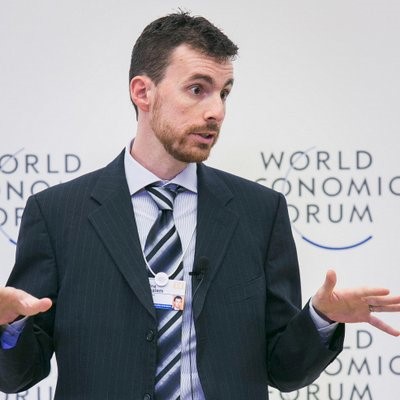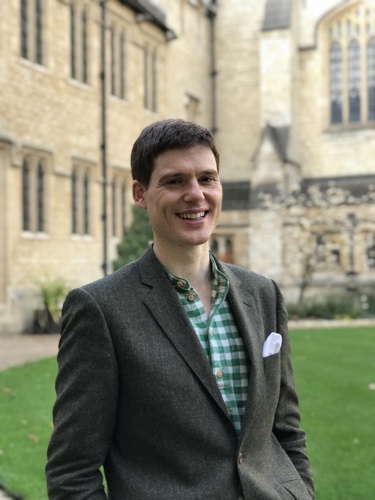11 Feb 2016
Department wins two Healthcare Technologies Challenge Awards
Innovative projects that promise to improve healthcare diagnosis and treatment announced as first recipients of EPSRC Awards

Nine researchers, working on innovative projects that promise to improve healthcare diagnosis and treatment, across a wide spread of issues, were announced as the first recipients of the Engineering and Physical Sciences Research Council’s (EPSRC) “Healthcare Technologies Challenge Awards”. Two of these researchers are academics in the Department of Engineering Science – Professors Antoine Jerusalem and David Clifton.
The nine recipients are leading UK early-career researchers with ambitious programmes for the development of next-generation technologies for use in healthcare.
The award winners will share in a £9 million fund allocated to support a cohort of future research leaders, to establish a personal programme of high quality, creative, and multidisciplinary research across the EPSRC portfolio, and to grow their research groups.
The researchers will work with clinicians, companies, and charities to speed up the process of translation and clinical adoption of their innovations, and to help them design their research so the barriers to its implementation in healthcare are minimal.
Life Sciences Minister George Freeman MP said: “From fertility diagnostics to disease detection, these award-winning projects - supported by Government's £6bn annual science budget - are great examples of how interdisciplinary collaboration can achieve game-changing results. By linking patients, technologists, clinicians and scientists, new tools and techniques to improve healthcare can be truly innovative which is why the UK is a world leader in life sciences.”
EPSRC’s Chief Executive, Professor Philip Nelson, said: “These Healthcare Technologies Challenge Award winners are our future research leaders who will be instrumental in ensuring the UK can meet the 21st century healthcare needs and thrive as a healthy nation.”
NeuroPulse
This endeavour is set to benefit the medical community in the diagnosis, prognosis, and treatment of Traumatic Brain Injury and Spinal Cord Injury
 Research by Professor Antoine Jerusalem and his team will focus on electrophysiological-mechanical coupled pulses in neural membranes: a new paradigm for clinical therapy of SCI and TBI (NeuroPulse). Professor Jerusalem says: “NeuroPulse will build the foundations of a new generation of disruptive and enabling healthcare technologies by exploring and using the interaction between the mechanical vibrational properties of neurons - a specialised cell in the body that transmits nerve impulses - and their electrophysiological functions. This endeavour is set to benefit the medical community in the diagnosis, prognosis, and treatment of Traumatic Brain Injury and Spinal Cord Injury, both major, global public health issues, while providing new avenues for non-invasive electrophysiological control, such as pain management”.
Research by Professor Antoine Jerusalem and his team will focus on electrophysiological-mechanical coupled pulses in neural membranes: a new paradigm for clinical therapy of SCI and TBI (NeuroPulse). Professor Jerusalem says: “NeuroPulse will build the foundations of a new generation of disruptive and enabling healthcare technologies by exploring and using the interaction between the mechanical vibrational properties of neurons - a specialised cell in the body that transmits nerve impulses - and their electrophysiological functions. This endeavour is set to benefit the medical community in the diagnosis, prognosis, and treatment of Traumatic Brain Injury and Spinal Cord Injury, both major, global public health issues, while providing new avenues for non-invasive electrophysiological control, such as pain management”.
Intelligent healthcare technologies
This is an exciting time, in which data scientists have a key role to play in establishing new methods for providing healthcare
 Professor David Clifton, who leads the Computational Health Informatics (CHI) Laboratory in the Institute of Biomedical Engineering (IBME) within the Department of Engineering Science, is developing a programme of “big data” healthcare technologies based on machine learning. The EPSRC award provides half of the £2.2m package to the CHI Lab, with other contributors including Microsoft Research, University spin-out companies, and the NHS. Professor Clifton says: “With an ever-growing quantity of data being acquired during routine care throughout the healthcare system, there is an urgent need to develop integrated, intelligent healthcare technologies that exploit these data to improve patient outcomes. CHI Lab is developing a machine learning platform for fusing data from electronic health records, patient-worn sensors, and diagnostic data. We collaborate with world-leading clinicians from the Oxford University Hospitals NHS Trust to create systems that directly address urgent clinical problems. Example outputs include 'early warning' systems for forecasting patient deterioration, in hospitals and in the home, and systems that can track the evolving nature of antibiotic resistance using genomic sequencing. This is an exciting time, in which data scientists have a key role to play in establishing new methods for providing healthcare.”
Professor David Clifton, who leads the Computational Health Informatics (CHI) Laboratory in the Institute of Biomedical Engineering (IBME) within the Department of Engineering Science, is developing a programme of “big data” healthcare technologies based on machine learning. The EPSRC award provides half of the £2.2m package to the CHI Lab, with other contributors including Microsoft Research, University spin-out companies, and the NHS. Professor Clifton says: “With an ever-growing quantity of data being acquired during routine care throughout the healthcare system, there is an urgent need to develop integrated, intelligent healthcare technologies that exploit these data to improve patient outcomes. CHI Lab is developing a machine learning platform for fusing data from electronic health records, patient-worn sensors, and diagnostic data. We collaborate with world-leading clinicians from the Oxford University Hospitals NHS Trust to create systems that directly address urgent clinical problems. Example outputs include 'early warning' systems for forecasting patient deterioration, in hospitals and in the home, and systems that can track the evolving nature of antibiotic resistance using genomic sequencing. This is an exciting time, in which data scientists have a key role to play in establishing new methods for providing healthcare.”




